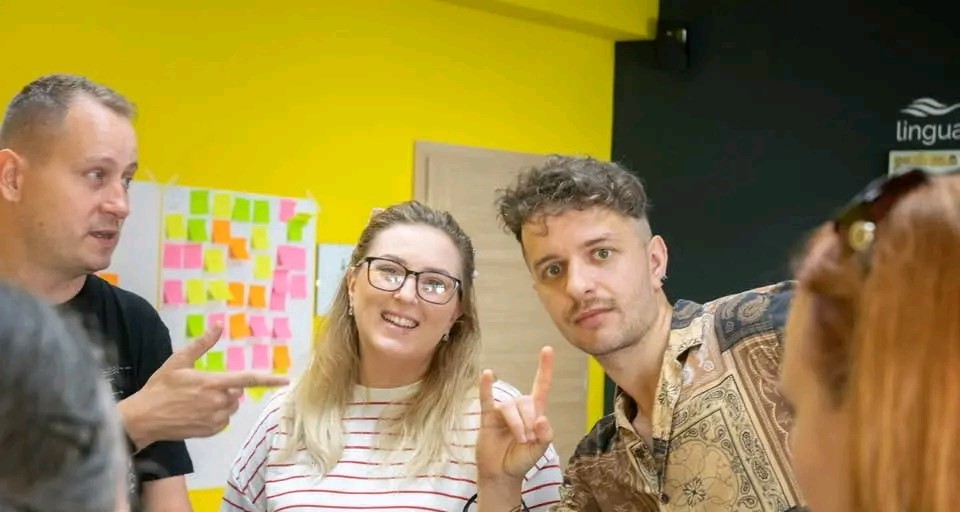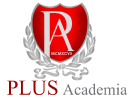KA203 – Transformation of a traditional language school by means of business model innovation.

Daniel Bacík
19. november 2020
Dĺžka čítania: 6 min.
Prečítané: 1,805 x
We are happy to inform you that we have succeeded in obtaining the funding for a new Erasmus+ projects this year. The managerial development of our institution is going to be elaborated in the partnership led by the team representing UNIVERZITA TOMASE BATI VE ZLINE, the Czech republic. The detailed description is given below:
Project title: Transformation of a traditional language school by means of business model innovation. MIND MAP
Project number: 2020-1-CZ01-KA203-078478
Project period: October 2020 – September 2022
Funded by: Dúm zahraničný spolupráce, Czech republic
Program: Erasmus+, KA2
Project partners:
- HARMONY ACADEMY s.r.o., Slovakia,
- PLUS Academia spol. s r.o., Slovakia,
- Pucko otvoreno uciliste Vinkovci, Croatia,
- BIEDRIBA EUROFORTIS, Latvia,
- Centrum Edukacyjne Feniks, sp. z o. o, Poland
Coordinator:
- UNIVERZITA TOMASE BATI VE ZLINE, Czech republic

Project outcomes:
- A new business model of a language school
- Four new programmes for adults
- Learn & Lead Webinar Online
- Analytical study of market and business models
- The Learn & Lead Guidelines for Trainers
Project Summary
Context/background
Traditional business schools face the number of challenges, which occurs as the result of transformation and digitalization of economy and changing customer needs. On the one hand, development of on-line language courses and platforms results in decreasing demand for traditional face-to-face language lectures and existence of on-line alternatives also results in increasing competition which reflects in decrease of price of the traditional language school products. On the other hand, customer, who can now select different on-line product alternatives doesn´t perceive the value of the customized face-to-face teaching. Such circumstances in nature jeopardize the long-term sustainability of traditional language school business model.
Objectives
Project reflects the current changes in business environment and aims on development of new business model for business school, which is based on transformation of the product to the more value-adding form of language education which connects the language and professional education. Such transformation allows the language school to be not only the provider of the language education, but effectively connect it with professional education focused on business and personal development.
Project participants consist of one University department, which has long term experience in entrepreneurial education and business model research activities, and four different language schools and a non-governmental organisation. Partners range from 5 different countries – Czechia, Slovakia, Croatia, Poland, and Latvia. Participating language school were carefully selected to cover different geographic and legal conditions, sizes and product structure. This variety allows the development of universal business model valid in different circumstances.
Description of activities
Methodology used
Used methodology starts with the deep analysis of current business model, customers and market, and identification of key limitations of the current state. We plan to use the up-to-date methods for new business model development such as canvas and value proposition canvas. As a result of developed business model, we plan to develop several new products and verify the applicability of these products for the fulfilling the customer´s needs.
Results
We plan to deliver several project outputs. Main output is the new business model for language schools which should be general and applicable by any language school in different conditions. This business model allows the different view on traditional language school business. We will support this business model by several new products for business schools, which reflects the new conditions of innovated business model and the changing business environment in this field. These new products should extend the traditional language education, to more value adding professional, business, and personal development training. These new products will be supported by the general guidelines for trainers and students, how to develop and use these new products. Specifically, we are going to:
- create 6 intellectual outputs (3 analyses: first of the current business models of language schools, second of external environment (including political, economic, social and technical factors) and third of customers), 4 new sector-specific and/or people & business development courses, Guidelines for the Learn & Lead Trainer, Students ‘Portfolio and the Learn & Lead Webinar Online interactive platform),
- organize 1 pilot training course Train the Learn & Lead Trainer (16 trainers), organize 2 pilot training courses for the final customers (60 participants), organize 1 Learn & Lead Conference (80 participants).
Impact envisaged
We believe that project could significantly contribute to the transformation of the traditional language school’s business into new type of business model, which reflects the changes in business environment, customer requirements and challenges of the new digital era. Project outputs could contribute to the development and boosting the language school business and bring new value to the customers of language schools.
Project will significantly contribute to the strategic activities of Tomas Bata University, Faculty of Management and Economics. Project has direct connection to the new innovated study programme Entrepreneurship and Business Administration, which includes the course “Business models”. Entrepreneurship, sustainability, and Business models are also included in key research fields of the faculty. Faculty may so directly connect the practical application of business models with teaching and research activities. University may also benefit from the project, by offering the project intellectual outputs and courses to its business partners and may utilize project outputs for improving the quality of staff as the UTB is considered bilingual university and provides number of study programmes in English.

Páčil sa vám tento článok? Prihláste sa do odberu noviniek a nenechajte si ujsť žiaden nový príspevok.
Pre všetkých nových odberateľov sme prichystali DARČEK!
Ďalšie príspevky

Ako riešiť konfliktné situácie?
Určite ste sa už zamysleli nad tým, prečo si s niektorými ľuďmi rozumiete a iní vám lezú na nervy už len svojou existenciou? Čo s tým? Viac v našom blogu.

Hybridná práca
Pandémia urýchlila prijatie flexibility a home office. Mnoho spoločností zistilo, že zamestnanci sú produktívni aj mimo kancelárie, čomu prispôsobilo aj svoju firemnú politiku. Kancelárska práca sa z veľkej časti digitalizuje, čiže je možné vykonávať ju prakticky odkiaľkoľvek.

Erasmus plus – Marek Hlinka
Prinášame blogy od účastníkov medzinárodnej mobility v rámci akreditácie Erasmus plus v chorvátskom Vukovare. V prvej časti si prečítate pohľad Mareka Hlinku.

Digitalizácia a jej formy vo vzdelávaní jazykov
Nárast práce z domu ukázal, že potreba využívania digitálnych komunikačných nástrojov môže byť nielen prekážkou, ale pri správnom využívaní, aj obrovskou výhodou.

Learner-centered Approach (LCA)
Learner-centered Approach (LCA), alebo prístup vo vyučovaní zameraný na žiaka, prečo hovoríme jednoznačné áno, a ako na to?

